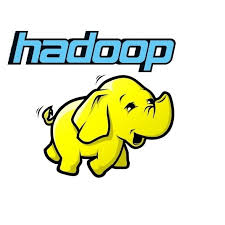When to use Hadoop (and when not to).
When enterprises inter ested in leveraging big data and analytics ask how to get started, they often are advised to begin with Hadoop, Apache Software’s open source data storage and processing framework.
ested in leveraging big data and analytics ask how to get started, they often are advised to begin with Hadoop, Apache Software’s open source data storage and processing framework.
There are a number of reasons why Hadoop is an attractive option. Not only does the platform offer both distributed computing and computational capabilities at a relatively low cost, it’s able to scale to meet the anticipated exponential increase in data generated by mobile technology, social media, the Internet of Things, and other emerging digital technologies.
But not all data scientists are climbing on board the Hadoop train. In fact, many have jumped off. In a recent survey of data scientists on the obstacles to big data analytics, vendor Paradigm4 reports that more than three-quarters (76%) of the scientists who said they have used Hadoop or Spark (the computational framework built on top of the Hadoop distributed file system) cite “significant limitations” to their use.
Take response time. If you’re looking to produce complex analytics or real-time analytics, Hadoop probably isn’t the platform for you, explains Claudia Perlich, chief scientist for Dstillery, a marketing company that crunches web browsing data to help brands target ads.
For the part of Dstillery’s business that delivers ads online, real-time analytics are essential. “That part,” Perlich says, “we can’t do with Hadoop.”
Another potential source of dissatisfaction with Hadoop is cost. Enterprises that go into Hadoop thinking it’s going to be free or cheap because it’s open source usually get a big surprise. And they usually end up paying by contracting with a Hadoop services vendor or hiring qualified Hadoop programmers and analysts to work in-house, and by then launching misguided Hadoop projects that cause them to fall behind competitors.
Early adopters of Hadoop who became disillusioned may have been victims of the first wave of Hadoop hype. The gradual maturation of big data and analytics technologies, along with better-educated customers, should make it easier for enterprises to choose the best analytics solution.
Source: http://www.citeworld.com
